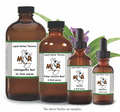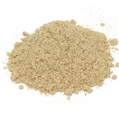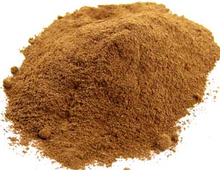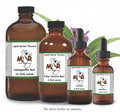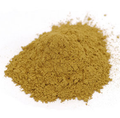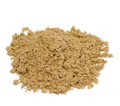 Loading... Please wait...
Loading... Please wait...- Home
- Bulk Herbs
- Herbs (W-Z)
- Wild Cherry Bark Powder
- Home
- Herbs - Organically Grown & Wild Crafted USA
- U V W
- Wild Cherry Bark Powder
Product Description
Wild Cherry Bark Powder
Wild Crafted USA
Also Known As – Prunus serotina, Black Cherry (Prunus virginiana), Virginian Prune, and Choke Cherry.
Overview - Wild cherry is native to North America's east coast, although it is now grown in many places around the world. It prefers lots of sun and room to spread its roots. The tree can grow up to 80 feet tall and blooms profusely in the spring. The bark is harvested in the fall and dried carefully. Wild Cherry Bark has been used by Native Americans for many generations. It is a natural expectorant that is even safe to give to children.
Medicinal Uses – Internally, Wild Cherry Bark has traditionally been used to relieve coughs of all sorts. It can also aid indigestion and irritable bowel syndrome. Wild Cherry Bark has been used for bronchitis and whooping cough, and it can be combined with other herbs to ease asthma. It is also mildly sedative. Wild Cherry Bark stimulates the flow of gastric juices and aids a poor appetite. Externally, Wild Cherry Bark can be soaked in water for a few days in partial sun to create an eye wash that is effective for pink eye and other eye infections.
Other Uses – Cherry timber is used to make furniture, veneers and tool handles. It also makes beautiful cabinets. The fruit is used to make brandy, wine and jelly. They are also eaten fresh and are a favorite of wildlife and songbirds. The tree can also be used to make a green dye.
Herbs to Combine/Supplement - Wild Cherry Bark can be mixed with coltsfoot to treat asthma and whooping cough.
- Combine with red alder and cedar to stimulate the appetite.
- Added to white oak, goldenseal, sarsaparilla, wahoo bark and boneset, cherry can help build your health and aid the complexion.
- For a spring tonic, add to hickory bark, prickly ash bark and mullein.
Parts Used - The inner bark of the cherry tree is used medicinally.
Precautions - Excessive amounts of Wild Cherry Bark can theoretically cause poisoning due to cyanide, since cherry contains hydrocyanic acid. Pregnant women should avoid wild cherry. There are no known drug interactions with the herb.
Never eat or make herbal tea from the leaves – they are poisonous.
Preparation and Dosage - Wild Cherry Bark is normally taken as a tincture or as a syrup. For these two methods, take 2 to 4 ml up to four times per day for coughs.
- Wild Cherry Bark can also be taken as an infusion by pouring a cup of boiling water over 1 teaspoon of dried bark. Let this solution steep for 10 to 15 minutes. Strain it and drink up to three times per day.
Disclaimer: These products are not intended to diagnose, treat cure or prevent any disease. Reviews are not intended as a substitute for appropriate medical care or the advice of a physician or another medical professional. Actual results may vary among users. Mountain Maus Remedies LLC makes no warranty or representation, expressed or implied, as to the accuracy or validity of the information contributed by outside product review submissions, and assumes no responsibility or liability regarding the use of such information. The information and statements regarding the dietary supplements have not been evaluated by the Food and Drug Administration. If you have a medical condition or disease, please talk to your health care provider. If you are currently taking a prescription medication, you should work with your health care provider before discontinuing any drug or altering any drug regimen, including augmenting your regimen with any herb or dietary supplements. Do not attempt to self-diagnose any disease or ailment based on the reviews and do not use the information contained herein for diagnosing or treating a health problem or disease. Proper medical care is critical to good health. If you have a health concern or suspect you have an undiagnosed sign or symptom, please consult a physician or health care practitioner.
© Mountain Maus Remedies. All Rights Reserved







